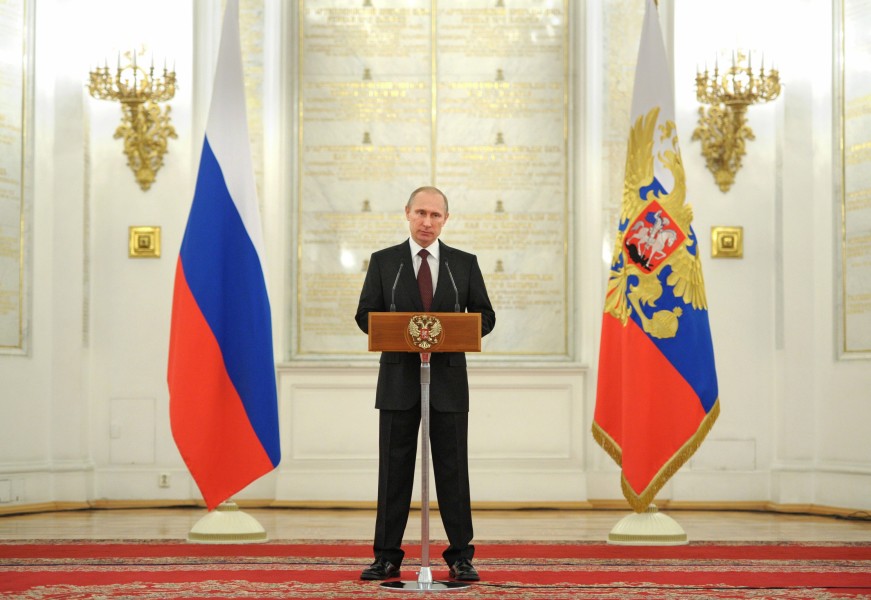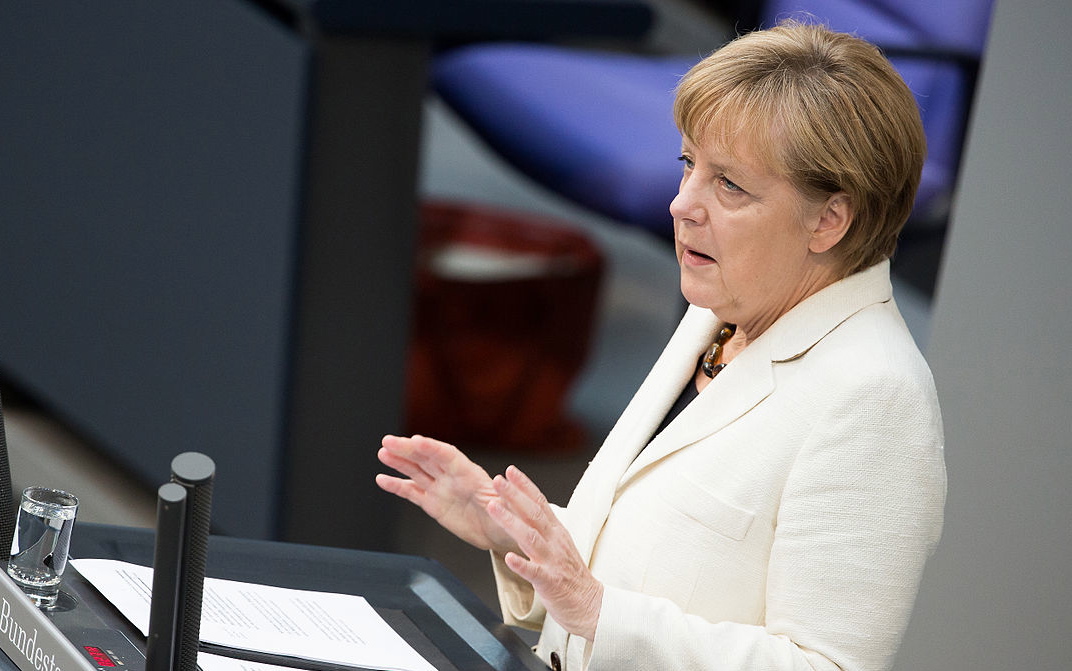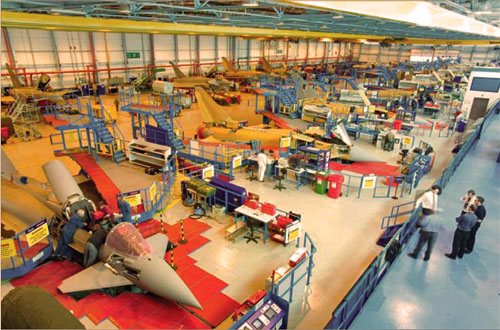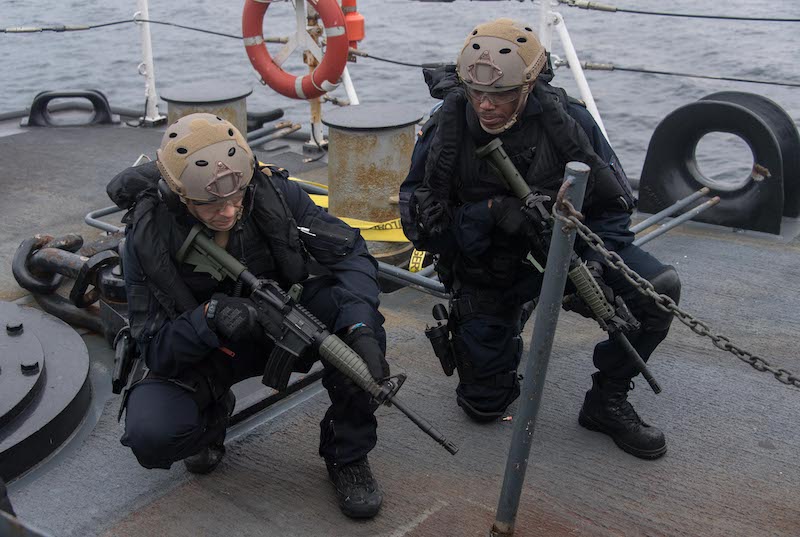Robert Coalson is a Senior Correspondent in Radio Free Europe/Radio Liberty’s Central Newsroom. He was the head of a major USAID-funded newspaper assistance program and was Opinion Section Editor of The Moscow Times and Editor in Chief of The St. Petersburg Times. In September, Mr. Coalson translated an important text on hybrid warfare by General Valery Gerasimov, the chief of the general staff of the Armed Forces of Russia. Mr. Coalson also has a Master’s degree in Russian Literature from Cornell University. The Atlantic Council of Canada thanks Mr. Coalson for his time and contribution.
Mr. Coalson is on Twitter: @coalsonr.
Further writing by Mr. Coalson: RFERL
Russia is starting to see mass layoffs due to the falling ruble and may deplete its reserve funds in 18 months if oil prices stay at $50/barrel. According the Russian finance minister, the military modernization program should be carried out over 15 years rather than 10. Do you think the ailing economy would lead to more or less military investment? Could more layoffs just mean more willing recruits for the army?
I think I have to disagree with the premise of your question. I’m not an economist, but I haven’t seen signs of mass layoffs. Moreover, Russia’s reserves are being depleted quickly, but they are still quite massive. Russia’s state sector is still very large and most of Putin’s political base is dependent on it (state companies, plus “private” companies owned by Kremlin oligarchs). These people will be protected as much as possible and for as long as possible. The West has forgotten – but Putin hasn’t – the quite considerable and personal (anti-Putin) protests that came up in 2005 over benefits reform (even many governors sided with protesters against Putin). Here’s a bit of what I wrote about it at the time.
In my opinion, Russia historically does not respond to economic hard times by laying people off. Even in the 1990s collapse, people remained employed and often worked for months on end without salaries. They were often paid in kind or under various other schemes, but they tended not to be laid off. Even the miners who famously blocked highways and held sit-ins in Moscow remained employed.
In the current situation, the government will do what it can to prevent the deteriorating economic situation from leading to social upheaval, including ramping up the patriotism and the fear of external threats, dipping into whatever reserves the Putin clan doesn’t take, ramping up the quiet fear of arbitrary punishment with example cases like the Bolotnaya ones or Navalny.
However, you are right that the deteriorating economy does make Russia’s military contract service more attractive and probably means the Kremlin
has little trouble finding enough people to fight in Ukraine. (As far as the conscription army goes, I don’t think any level of economic collapse in Russia is going to make that prospect attractive. Again, even in the 1990s, no mothers were sending their sons off to the army happily.)
As for military spending, this is a major problem. Together with low hydrocarbon prices and Western sanctions, it is one of the three reasons why the economy is in such trouble. Putin is clearly pursuing military modernization against the advice of his economic advisers. This is major evidence, I think, that the military/security/nationalist hardliners are the ones who have his ear now. A Kremlin-friendly analyst told me in December 2013 that if military spending reaches Soviet-era levels (30 percent of the budget or so), it will be a disaster for Putinism. I believe current spending is reaching those levels.
Earlier this month, you published an article mentioning the dozens of small bombings across Ukraine and how these events seem to fit into Moscow’s doctrine of hybrid warfare, could you expand more on this parallel?
The low-level terrorism across Ukraine is a perfect example of the doctrine of hybrid warfare and a very clever tactic that is effective in many ways. The hybrid warfare doctrine calls for the use of various methods to demoralize the enemy, to turn the civilian population against the enemy government, to stretch the resources of the enemy government thin. An important goal is making those people who cannot be brought over to your side as passive and neutral as possible.
First, this low-level terrorism creates fear among Ukrainians without drawing the kind of international attention/condemnation that, say, the MH-17 downing did. Slowly, over time, it creates the impression that the government has failed and people begin listening more seriously to voices calling for change (voices which in many cases are also part of Russia’s hybrid warfare campaign). It plays into the Kremlin’s narrative that Ukraine is a “failed state.” It also provides lots of fodder for disinformation/distraction campaigns about “government provocations” and so on. 
Second, it forces the government and society to respond by deploying resources throughout the country instead of concentrating them on the relatively small “front line” in the east. People in central and western cities are working on their own security instead of, for instance, raising money for or contributing items to the military in the east.
Third, as the government responds, it gives […] Kremlin supported voices reasons to complain. Such as “They say we live in a democracy, but the government won’t let us demonstrate!” These complaints are picked up and amplified in Ukraine and abroad. If the government missteps – conducts an illegal search or kills someone who was not involved in terrorism – these voices are ready to make sure it is spun in the worst possible way.
I’m sure there are more “pluses” to this kind of tactic that more experienced analysts could enumerate for you.
There has been mention of a shift away from the traditional 3D battleground to information/psychological war. What is the role of ‘informational space’ or what is referred to as the ‘informational sphere’ in hybrid warfare?
I think we are only beginning to understand this, perhaps too late. There are several goals to the “information” aspect of a hybrid campaign. The one we are seeing around Ukraine has been very effective, although more so outside Ukraine than inside. I would argue that Ukrainians themselves have been the least affected by this part of the war.
But outside Ukraine, it has been very effective. Russia is aware that it is a closed, authoritarian, unitary state that is fighting (in its mind) against a coalition of open societies/democratic states that make decisions by consensus. It uses its strengths (its ability to coordinate military, political, informational, religious, social, cultural, etc. activity) against the West’s weaknesses (its tolerance, its openness, its corruption, the dependence of its leaders on voters, its need to take time to build consensus, etc.).
 So it shapes opinion where it can, trying to win as many supporters as it can. But more importantly, it seeks to confuse and pacify as many others as possible. When people in the West say “the situation in Ukraine is too confusing to make any sense of,” the Kremlin has won, especially when politicians in EU countries have to explain to their voters why it is necessary to bear economic hardship over the issue.
So it shapes opinion where it can, trying to win as many supporters as it can. But more importantly, it seeks to confuse and pacify as many others as possible. When people in the West say “the situation in Ukraine is too confusing to make any sense of,” the Kremlin has won, especially when politicians in EU countries have to explain to their voters why it is necessary to bear economic hardship over the issue.
Russia knows that if it waits, there will be elections in EU countries and it can influence those elections and create a more Kremlin-friendly international environment.
The important thing for everyone to realize is exactly how long Moscow has been putting the elements of this campaign in place. It did NOT just begin with the Ukraine crisis. Aleksandr Dugin has been cultivating ties with Russia-friendly thinkers and movements in Europe for two decades. Russia has been creating its own think tanks or co-opting existing think tanks around the world for many years now. And, of course, it has been actively working in the international media sphere for more than a decade, not counting whatever Soviet-era ties remain with leftist media outlets in Western and Central Europe. In recent years, though, these old efforts have been bolstered by influxes of money from Russian oligarchs like Vladmir Yakunin and Konstantin Malofeyev and by Russian state companies (for instance, the loan to Front Nationale in France).
I would also add that I agree with Timothy Snyder and others that we brought a lot of this on ourselves. All of the Kremlin’s most successful tactics in this sphere were perfected in the West by Fox News and others, by climate-change deniers, by unethical political consultants of all stripes, etc. We built this atmosphere of “post-modern cynicism” ourselves and Russia is able to work in it very effectively.
With the shutdown of Tomsk TV-2 and Dozhd TV, what is the current status of freedom of the press in Russia?
There is no freedom of the press in Russia. With all due respect to the very brave people at Tomsk TV-2 and Dozhd TV (and I’d mention Novaya Gazeta and New Times magazine as well), their efforts are not significant in the big picture. The people who are doing that work are noble and someday Russia might erect a monument to them (as it often does to individuals who were persecuted and/or murdered during their lives), but they aren’t effecting Russian public opinion and the information they uncover is not known or discussed or influential in government decision making (as it was in the 1990s).
In his book, ‘Information World war II-War against Russia’, Panarin claimed that the ‘colour‘ revolutions from the Commonwealth of Independent States (CIS) area and the Arab Spring were a product of informational aggression from the US. Panarin also believes that Euromaidan was part of the anti-Russian campaign planned by the West. How influential are the ideas of thinkers such as Igor Panarin? Should analysts look to Panarin’s ideas to gain more insight to Russia’s actions?
I see Panarin as a follower, not a leader. I follow him on Facebook because he reads and distributes the main talking points of the disinformation campaign and it is interesting to see how they spread from there. I have noticed many times that he will highlight an article on some obscure website in the .SU domain and use a clever turn of phrase about it and then, a couple of days later, I see the same “information” in the Russia-controlled Czech-language press here in Prague. He is just a front-man “professor” with some credentials that others take their cues from. I see the infamous Sergey Markov in much the same way, although he is probably better connected. But I know that if he uses a word like “genocide” in his posts, then it will be all over social media and other places within a day or two.
But what Panarin and Markov have in common with the Kremlin is a conviction that there is a state of war between Russia and the “liberal” West.
What is the significance of what Brian Whitmore and Mark Galeotti call the seventh column? Do you agree that if Russia will change course, change will come from within parts of the Russian elite, what Whitmore calls a ‘coalition of the rational’?
That’s a really hard question and it is bold of Brian and Mark to put that analysis out there. Certainly, that sort of idea is attractive because it suggests a way out of the present impasse that doesn’t involve war or revolutionary upheaval in Russia. Brian has named Shoigu, Zorkin, Kolokoltsev, and others as possible members of this “seventh column” that could persuade Putin (NOT replace Putin) to change course . I’m not so sure. Maybe in their heart of hearts they’d like to play this role and they do think Putin has made a strategic mistake in Ukraine, but I see them much more as yes-men who go along and do what they are told. Shoigu has long been Russia’s second most-popular politician (about 30-40 points behind Putin) and he isn’t going to do anything that would make Putin think he’s interested in being president. Zorkin (who I once looked to with some hope. See here) has been twisting the Russian Constitution around so much for years now to suit Putin that it is hard to take him seriously. In addition, I haven’t seen much evidence that Putin turns to him for advice at all. When you think of these people trying to get past Sechin and the Ivanovs and Patrushev, etc., to reach Putin’s ear, it just seems unlikely to me.
. I’m not so sure. Maybe in their heart of hearts they’d like to play this role and they do think Putin has made a strategic mistake in Ukraine, but I see them much more as yes-men who go along and do what they are told. Shoigu has long been Russia’s second most-popular politician (about 30-40 points behind Putin) and he isn’t going to do anything that would make Putin think he’s interested in being president. Zorkin (who I once looked to with some hope. See here) has been twisting the Russian Constitution around so much for years now to suit Putin that it is hard to take him seriously. In addition, I haven’t seen much evidence that Putin turns to him for advice at all. When you think of these people trying to get past Sechin and the Ivanovs and Patrushev, etc., to reach Putin’s ear, it just seems unlikely to me.
Psychologically, it is almost impossible for Putin to admit he has made a mistake. I don’t see him radically changing course under the influence of reasonable people. As much as I hate to say it, I think he thinks he is winning and he will push on. It is possible the current crisis will be a crisis not only for Putin but for Putinism, but what form that will take and how long it would take before something better than Putinism emerges in Russia is impossible to say. Let me stress – I am not wishing a revolutionary scenario in Russia on that country or the world. It would be truly terrible. But Putin is 100 percent to blame for intentionally creating over two decades a closed and alternativeless political situation that likely can only react to crisis by collapse.
I’d also mention that I recently heard a presentation by two top analysts from Primakov’s IMEMO institute and they did not impress me with their independent thinking. They paid lip service to the idea of reform, but were vague about its content and said it would have to wait until after the current crisis. As for Ukraine, they said there are no Russian forces in Ukraine and Russia is not a party to the conflict there.
But I hope Brian and Mark are right. It would be good if Russia could go from Putin to soft Putinism to non-Putinism in some sort of organic, evolutionary way. But I’m not optimistic about that.

What are your views on Canada’s role regarding this issue?
You might be surprised to hear that I think Canada could potentially play a crucially important role in all this. In my opinion, the United States has lost a lot of “moral high ground” in the last 20 years, and it is beginning to get harder and harder to argue that the Western liberal world is values based, ruled by law, fair, etc. Canada, in this regard, is much less tainted and much more attractive as an example (I realize Canada has flaws). I would strongly urge Canada to be more assertive. I would urge Canadian politicians, in their contacts with counterparts in Washington, to be relentless in their criticism of policies that fly in the face of the values we supposedly stand for. We have to – through actions and policies – prove to the world that there is an essential and not just a cosmetic difference between Russia’s world view and the West’s. As the conflict becomes increasingly one of values, Canada becomes a stronger and stronger player, perhaps the country with the greatest claim to be the “superpower” in that realm.




